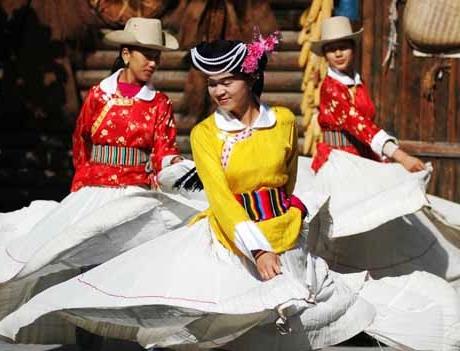
The walking marriage widely adopted by the Mosuo people of China is a unique marriage custom that is deeply related to its social and cultural traditions of the matrilineal family system. In a walking marriage, the couples do not marry to each other and both stay in their own matrilineal family for their whole life. The marriage and propagation of offspring is realized through "walking" by male. The women open their doors to their lovers every evening, and the men walk home to work in their mother's household every morning. Neither of them is a member of each other's family. The woman and man in this relationship call each other A-xia, which means lovers in the sense of husband and wife.
An ancient ceremony called "Cang Ba La" is held for the walking marriage of Mosuo people, which means worshiping the Kitchen God Bodhisattva and ancestors. The ceremony is held in the bride's house, often at midnight, without feasting, receiving gifts or attendance of friends. The bridegroom's family should invite a voucher to bring the proposing man to the woman's home. Then the man should introduce himself to the woman's mother and uncles and obtain acknowledgement. He needs to send reasonable gifts to the family, with one for each elder and junior. After that, the man should bow down to the Kitchen God, ancestors and elders of the family and receive the blessings from the elders and sisters. The A-xia should dress up all over according to Mosuo customs, while the man will receive the characteristic colorful Mosuo linen belt meticulously knitted by the woman. When the voucher finishes clarification of certain issues to A-xia's mother and uncles, the relationship between the man and woman will be open.
The Mosuo people in a walking marriage maintain their marriage only by their affection without involving in material or interest factors. Today, over 90% of Mosuo people still perform the walking marriage.




